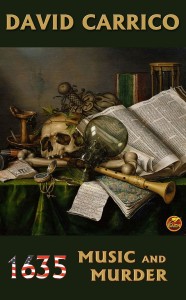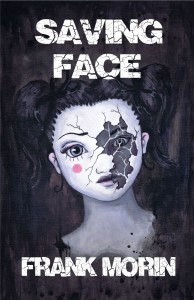Nothing serious today. I just wanted to take this Saturday opportunity to state once more that my first novel, a collaboration with Eric Flint entitled 1636: The Devil’s Opera, will be available in bookstores on Tuesday, October 1st. It’s the latest installment of the largest and longest-running alternate history series in print today, which began with Eric’s novel 1632, which was published in the year 2000.
I did Fictorian posts about the writing of 1636: The Devil’s Opera here and here. And I did a post about the publisher’s innovative e-book marketing approaches here, which mentioned the early availability of the e-book edition of the novel. So you can relax—I’m not going to rehash any of that. What I do want to mention is something else interesting that the publisher—who is Baen Books, by the way, one of the more innovative traditional publishers around, in my opinion—recently did in connection with the release of the novel.
1636: The Devil’s Opera didn’t appear out of thin air. It didn’t spring full-grown from the brow of a literary Zeus. No, the novel utilizes two different sets of characters that I had been writing stories about for and in Grantville Gazette e-magazine, and Grantville Gazette and Ring of Fire anthologies since 2004. The novel is built upon the foundation of those earlier works.
What Baen did was have me gather all of the earlier stories, do an edit for consistency and to fix continuity errors that had been identified since their original publications, and publish them as an e-book under the title 1635: Music and Murder. Twelve stories, ranging from short story to short novel in length, amassing over 200,000 words, are now available in a unified edition which was released earlier this week.
This amounts to the creation of a prequel volume to 1636: The Devil’s Opera. I didn’t think about this much at first, because I was so pumped about getting the stories out in their own volume. But it finally dawned on me that what Baen has done is create a second volume very closely related to the novel, and pitched it as an e-book at a very attractive price point of $4.95. People who are fans of my characters—and there is a sizable group of those—will buy the e-book without even thinking about it much. That’s understood. But Baen’s perception is that the readers whose first encounter with the characters is 1636: The Devil’s Opera will more than likely want to read about their earlier days in the universe, and voila, Baen just happens to have that available as well. Smooth marketing.
So what can we learn from this? Well, the big lesson is whether we are publishing in a traditional model or an independent model, when we’re getting ready to release something new, we should look at our works inventory and see if there’s anything there that we can release or re-release or otherwise promote to leverage off of the new release. If we have related works, by all means put them forward. Failing that, promote works that are thematically similar.
It would be great if the publisher will get behind it, as Baen did in this case. But even if they won’t or can’t, there’s no reason why anything we have available for indie publishing can’t be promoted.
Leverage off the new work by any means you can. Take advantage of any attention you can get. It’s just good business.
So, in closing, here they are: 1635: Music and Murder and 1636: The Devil’s Opera. Feel free to acquire one or both, and let me know how you like them, either here at Fictorians or at http://davidcarricofiction.com/.
Enjoy.






